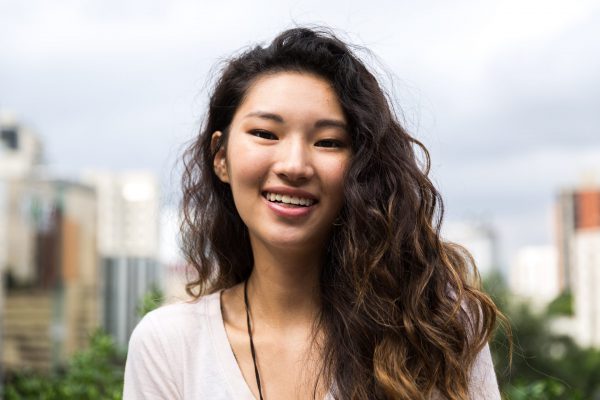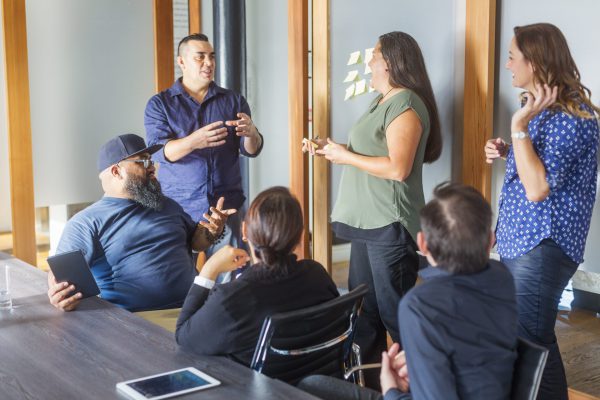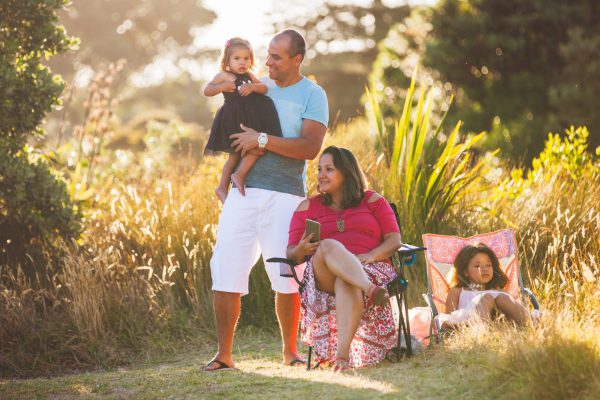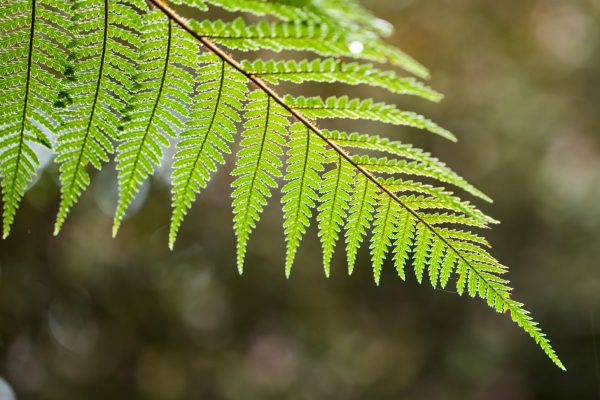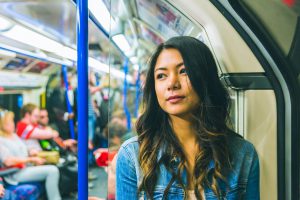Safety and wellbeing
-
Resilience, self improvement and identity
Resilience and strength are essential for peoples’ wellbeing. Many people in society are affected by injustices, contributing to anxiety and depression. There is a need to teach resilience skills in young people’s education, and create community education programmes to improve public awareness of the connection between trauma and injustices like discrimination.
We all carry a sense of injustice from things that have happened to us and we need to look at why we are getting triggered. But the person who triggered might not even know. We can’t change anybody, but you can change yourself.
-
We all carry a sense of injustice from things that have happened to us and we need to look at why we are getting triggered. But the person who triggered might not even know. We can’t change anybody, but you can change yourself.
-
Need to teach resilience to kids. Too many girls develop anxiety and depression from ages 8-10. How do we build resilience?
-
I tend to focus on the things that I can change, I focus on my own sense of resilience and strength. I want to have control over how I react to people.
-
I have often had bad experiences in life, but I have learnt to live and survive through them
-
To me, considering the difference, I’ve seen the difference in 13 years living here. When I was travelling the world, I didn’t care about meeting people who spoke my language. When I came to settle down, I got pregnant and had children, and they weren’t going to have my language and culture. Then I started [a] Latino group, celebrating things the way I celebrate things. Now I’m feeling a huge need for it. It’s becoming hard to handle. The groups need to grow, because we are trying to, we are working on who we are and what we do.
-
We need to add more spirituality/wairua to our daily lives.
-
I need to get help [effects childhood trauma].
-
From a personal level, if we all own our own stories. I found that a very good starting point. I need to be comfortable in who I am, in order to invite people into my story. When I first moved here, we have to accept that this is our reality and we need to own that. It takes time.
-
Giving them [people on benefits] the opportunity to give themselves the opportunity they have. There's a lot of power in people believing in themselves. Giving someone confidence by believing in them. I see that in myself, being around people who believe in me and people who haven’t.
-
I would say I have a lot of acceptance power. Understanding a thing and accepting a thing are different things. They can understand but they don’t accept. In my character, acceptance plays a very important role. I could accept that everyone is different, God made us like that. If we stop complaining he is different, she is different, and start accepting.
-
You need to have the urge to do more, to connect people, to bring together diversity.The other thing I have is love. Not only love for your partner, your family, I have love for all people. So if someone can be inspired from me, can learn something from me.
-
I think, we can use both external help, or self-help. If you’re capable of managing, it’s good. If you can’t, get help. We are social workers, we have a lot of resources, so supervision, or counselling resources. Seeking specialist support as well. At the time I’m struggling, I used my self-help skills.
-
-
Speaking up
When people know that something is wrong but say nothing, this continues the problem. Participants brought up the need for people to speak out when harm is being done to others. Whether the victims of discrimination are friends, whānau, or strangers, a culture of silence causes harm. People need to take responsibility to support and speak up for others when there is a need.
The biggest problem I have faced is silence. People knowing, seeing, watching and not doing anything about it, and perpetuating the problem by sitting in silence and not doing anything about it, so people in power can keep me down and out. Perpetuation by silence is the biggest problem. It’s a killer.
-
The biggest problem I have faced is silence. People knowing, seeing, watching and not doing anything about it, and perpetuating the problem by sitting in silence and not doing anything about it, so people in power can keep me down and out. Perpetuation by silence is the biggest problem. It’s a killer.
-
Calling out discrimination, divisiveness, judgement, when you see it, you can make people aware of something they probably didn’t even know they were being racist, etc.
-
In NZ, people don’t like to speak out. People don’t like to say the truth. They don’t like people who speak out and say, “this person is racist,” or like that woman who wrote her story who spoke out about the police raping her and took those police to court.
-
It’ll be stuff about intricacies or nuances around language, and somebody will laugh at the way that someone says and they’ll be like, ‘I was just trying to say something in your language, which is my second language’ and because I now understand those in between it’s like, it’s definitely my responsibility to say something in that space, and so it’s uncomfortable but important.
-
To change that [prejudice], the best way is to actually call out those people. And say that’s your opinion, but others are allowed their opinion too.
-
We all have a responsibility [for addressing racism and violence], if it’s your nana or brother that’s being beaten up then you need to take action.
-
The Black Lives Matter movement provides a bit of hope. Want to see the community level action where people feel comfortable calling people out. Rather than government saying you should accept everyone. When it becomes the norm, it becomes easier.
-
Unless you approach and tell them about your needs and religion, they won’t know. Like my kids, they asked for a prayer place. It helped with other students as well. Unless you approach your work place, they won’t know. You can’t expect them to know everything.
-
I think it’s an allyship thing. People who have the power need to speak up. A few of us noticed recently that someone that we work with was posting quite offensive stuff on Facebook and it came to like what are we going to do about it? We have to do something. I didn’t feel comfortable as a POC to say something, and I should’ve but I felt like it needed to be someone who was more the same as the guy who was making the comment (a white man). He needed to be the one to call it out. POC are always calling out the racism that we experience. I think there is more of that now, especially with BLM, it’s becoming a bit more open because before that I think it was worse.
-
When talking to other students about gentrification and other issues, just cause in a position of privilege doesn’t mean you can’t talk about issues. Any person conscious of the injustices and trying to be a voice rather than normalize it. Whether you are white or privileged.
-
I can’t see those riots happening in NZ, those riots. We need to be more passionate and more fucked off, and a sense of injustice. Our education system encourages blandness and fitting in, fitting into boxes.
-
[in regards to [xxx] children] I hope that they don’t feel that they don’t belong. That they don’t say it. I didn’t say it. People don’t say [that they don’t belong], they don’t want to rock the boat, so hold it in until they’re 60. That’s why it’s important to talk about it.
-
Also people having the courage to challenge. Saying “hey, there’s something wrong here, we need the power to fix it”. Black Lives Matter is an example of how far it can go when it goes bad.
-
I barely know anybody [overseas] who cares about ancestry, because it’s really strong here. I was at the Mount once, there was a Sikh family wearing their turbans, this car stopped, 3 or 4 teenage kids with an adult, stopped and said “go back to your own country”. I asked, “why didn’t you say something?”, they said “oh, they’re just kids”. I said “no, you need to talk back.”
-
I get really annoyed when people don’t stand up for themselves. Why would you feel inferior to anyone else? I was taking my kids swimming once, there were these Pākeha women having a conversation. They said we went to Mt Ruapehu, and there was this Asian guy, and they put our kids up the front so they could go skiing. And the other one said, “do you know why they did that, it’s because Asians like blond kids.”
-
NZ being small is a positive as well as negative. So in a town like this, you can access the Council. If enough people are standing up and saying things, you can get momentum.
-
There have been times when I’ve had to call people out. And I do that. It’s not just in society in general, it’s in Government, government boards. That’s where we need extra training, some assessment as to where people sit in that sort of paradigm. We need to be walking the same pathway in terms of our values.
-
I remember the victims of March, there was a service here and some Muslim representatives of the community were here, it was solidarity. A week later. Then a friend she’s very Christian, she invited me to a multi faith conversation at the Presbyterian church, it was 20 people. We were from different churches, having the desire that we are not anti any church, compassion, unity. What I got out of that reminded me of younger years of my sexual identity, it took me a while to come out. I don’t believe in closets, I don’t think it’s good. We say if we want to live a happy life, stay quiet – I don’t believe in that.
-
Having a tangata whenua connection here, it becomes tiresome to deal with this. we are not going to be invisible. It’s unfortunate, how are we going to change that? We get around the table and have this conversation. But we’ve been confronted with this one person, this racist. So next thing is to have a face-to-face, to deal with it. This is our safe house, this is sacred space, and that is not tolerated by us as our organization. It’s [Racism] a form of violence as well. That concept that this is MY taxi stand and she’s an employee of the taxi service. And her children are part Māori too!
-
I’m also a teacher and I’ve spoken out about children who were not being treated right. In this system, those who speak out are not protected. People at the bottom who see work-place bullying, work-place racism, but if you speak out about it, then you’re stomped on. If you speak out about child abuse, you’re a narc.
-
I love my aunt who is a voice for standing up for Māori. It’s important to honour the treaty which I think is not being done.
-
Racism needs to stop and be called out when it is happening. Nz says racism does not live here. But we all use stereotypes and have our set beliefs that have been passed down.
-
There is that notion of silence and supporting individuals to not belong [xxx] I’d say so [xxx] Yeah I remember once turning up to a party and I was the only one smoking weed. I was judged and they weren't puritans by any means, they weren't rich but... [xxx] Are there different levels of silence?[xxx] Probably, and when you say silence, do you mean if you speak up? [xxx] Talk about whatever it means to you. [xxx] speaking up marks you as someone rocking the boat, but what were you gonna say? There are different levels of speaking up, and the notion of tone pleasing. If you confront someone and don't do it an angry way, it can be accepted. People focus on the target tone rather than the message.
-
Stop thinking of us as inferior race, they think they are better because they are white. No they’re not. I’m not saying everyone is like that, but there are some people. Last week I was at a friends’ farewell, he is a white guy, and another white guy, we’re discussing about xenophobia – it’s the biggest problem here. The guys tells me “from talking to a white guy, he will assume that I share his ideology, they will open up in front of me, and I will say no mate, I’m not sharing that way of thinking”. Those racists won’t come straight to me, but they would say it to that white guy. They think we come here and take their job. Or Muslims are going to take over NZ.
-
-
Safe environment to be yourself
Feeling safe and safe to be yourself is necessary for belonging - and if absent, can have both physical and emotional impacts. Participants shared the need to resource and create safe neighbourhoods where people can live without fear and anxiety. Participants also talked about community relationships, how getting to know your neighbours and understand their differences can enable acceptance and help people feel safer.
William Schumaker who wrote ‘Small is Beautiful,’ is about how people matter more than economics. If you create safe neighbourly environments, your security comes from your neighbour. When you make those linkages, something changes in that society. If we can get back to that kind of thinking, we can change society.
-
William Schumaker who wrote ‘Small is Beautiful,’ is about how people matter more than economics. If you create safe neighbourly environments, your security comes from your neighbour. When you make those linkages, something changes in that society. If we can get back to that kind of thinking, we can change society.
-
I say that’s not safe. When they say something to me of how they feel [such as personal struggles], I say that’s not a safe space for you to be. I’ve been part of the Not OK campaign. I like to have a voice in that. I like to be able to speak in those spaces.
-
feel free to believe and practice [your religion], but within the law [super emphasised word]. That’s what makes things peaceful. Following the one law. You need one law and one ethical way of relating to people to be peaceful, a peaceful country.
-
What is the biggest reason that people are excluded. Fear is a big one. Stop people being scared. About people themselves, not holding back on who you are. So that when others meet you, they meet you fully. If you’re not scared to be yourself – I don’t know how you achieve that though.
-
Giving voice so people can realise their agency. Enabling communities to have agency
-
Lots of little things, the idea of microaggressions, but more than that. How comfortable you feel doing things.
-
I think we need to know each other’s narrative. People don’t share it by default, you have to have a safe space to share it. Until we have it, we just have ‘other.’
-
Education is the key. But community education needs to happen. What do we need to know about each other to stop ‘othering.’ People just ‘other’ people because they just don’t know them.
-
Being able to hear stories that you can relate to in the public sphere. If I don’t hear those stories that I can relate to then I don’t feel a part about whatever is going on.
-
Acceptance from others [expressing opinions online].
-
[in regards to lesbian muslim friend] we don’t always have to agree with things accommodating for but having space or having niche presentation for them, niche space for them to belong can make all the difference.
-
The change in the mindset. I want to use the word “plurality”, of everything. [She defines this as:] I am ok with having different thoughts in the space [where others are]. I can hold a dialogue, I can hold interaction with a [person of a] different mindset. That extends from an individual level to government level as well. Plurality needs to be normalised.
-
-
Tackling bullying
Participants talked about the need to address bullying at school and in other parts of society. Many bullying programmes focus on building victims' self-esteem and resilience, but there is a need to focus on changing bullying behaviour. Programmes and education that focus on people who bully could lead to prevention. Participants also identified that schools need better role models that practice anti-bullying behaviour.
Part of the contract was around bullying, but all the science is pretty much around is building the self-esteem of victims. There wasn’t much around stopping bullying. So, making people less affected by it, rather than stopping it. It was about relaxing, exploring how to solve problems. That’s how they did it. There wasn’t a lot. All the research and stuff, everything pointed at building resilience.
-
Part of the contract was around bullying, but all the science is pretty much around is building the self-esteem of victims. There wasn’t much around stopping bullying. So, making people less affected by it, rather than stopping it. It was about relaxing, exploring how to solve problems. That’s how they did it. There wasn’t a lot. All the research and stuff, everything pointed at building resilience.
-
Boys and girls need strong male role models. For me, it’d be to feel that the schools have the capacity to show the diversity and for the children to feel the strength to reach out for help, to know what to do about what’s happening to them. My son is getting hit and bashed out of view [of the teachers], and what is he to do? And it was a one-on-one thing, it wasn’t a gang thing. I brought up my children to behave in a certain may, to not hurt anyone, but the school needs to do their part. I’m grateful that the DP [at my son’s school] had the skill set to deal with it [the bullying]. When the bully was called out for his behaviour, he was in the DP’s office, crying and crying, but it was because he knew he’s been caught.
-
I found when I was doing an anti-bullying project, and walking in primary school, I found the judgement of kids had already happened. The expectation of success and non-success [ie that kids were already categorised by primary school into those two categories]. People were trying to do their best, and that’s systemic, it’s not just individual. Some individual teachers did better than others, it’s systemic. Having the right lights and sound system for teachers, to have teachers to be heard. The teachers had to shout to be heard. It’s systemic.
-
